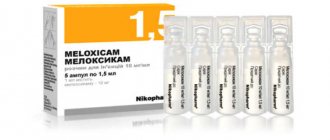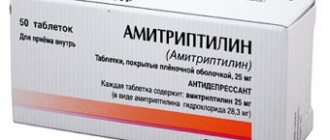Suppositories are one of the most common groups of medications for the treatment of gynecological diseases. This is primarily due to the fact that only through them, in case of a number of problems, can active substances be delivered directly to the end point, bypassing the digestive system. This makes medications safer and more effective.
Among such medications, gynecologists highlight Indomethacin suppositories. Where to insert, why they are needed and how they work are the main questions that concern women and require the most detailed answers.
Analogues in structure
Today there are a huge number of indomethacin analogues. It is produced in Russia, Bulgaria, Italy. Almost all manufacturers offer various forms - from solutions to ointments. The only exception is indomethacin, used in ophthalmology - it is produced strictly in the form of drops or suspension.
Modern suppositories and ointments based on this substance differ not only in name and country of origin, but also in price. What analogues of indomethacin are most often found in pharmacies? We are talking about the following medications:
- Indomethacin Sopharma.
- Indomethacin Berlin Chemie.
- Indomethacin-Altpharma.
- Indomethacin Biosynthesis.
- Indobene.
- Methindol.
Which drug should be preferred? Are there any fundamental differences between them?
Similarities and differences
All these medicines have the same effect; they can differ only in price, quantity and dosage of suppositories in the package and the weight of the ointment.
The most expensive are indomethacin suppositories and ointment from the Berlin Hemi company, jointly produced in Italy and Germany. This is due both to the well-known brand and to the quality and reliability of the drug itself. All Berlin Hemi products are protected from counterfeiting.
Methindol is a drug that is produced in Poland. It can also be classified as an expensive analogue of indomethacin. The price of Methindol varies significantly in different pharmacy chains.
Indomethacin from Sopharma, Bulgaria is in the middle price category. The cost of tablets, ointments and rectal suppositories is lower than Berlin Hemi products, but higher than their Russian counterparts.
Indomethacin from Altpharma and Biosintez companies is produced in Russia. This is due to its low cost. But it’s not always cheap – it’s of poor quality. The drug is well tolerated, is available in all dosage forms - tablets, suppositories, ointments, and does not have any special side effects.
Indobene is a drug from an Austrian company. Available in the form of tablets, dragees, rectal suppositories. The local form is not an ointment, like other manufacturers, but a gel. The gel structure allows indomethacin to be quickly and easily absorbed through the skin without leaving any traces.
https://youtu.be/cYPQTKpsCFU
Effect of the drug on the fetus
According to the instructions for use, Indomethacin belongs to the “C” class of drugs. During testing, the drug had a negative effect on the intrauterine development of laboratory animals. Similar experiments have not been carried out on humans.
In the first trimester of pregnancy, the vital organs of the embryo are formed. Any medications can have a negative effect on the processes of division of tissues and cells of the unborn child. This is why doctors do not recommend using Indomethacin in the early stages.
In the second trimester, if the dosage is observed, the drug has no negative consequences for the body of the unborn child. During experiments on laboratory animals, rare cases of toxic effects of the drug were established. With repeated increases in the dose, delayed formation of the bone skeleton was observed.
The use of Indomethacin in the third trimester is permitted in the presence of serious maternal illnesses. In the last weeks of pregnancy, nonsteroidal anti-inflammatory drugs have a negative effect on the cardiovascular system of the fetus.
Indomethacin can cause premature closure of the ductus arteriosus, myocardial structural abnormalities, and heart valve defects. The drug also promotes the development of pathologies of the blood coagulation system. When using the drug, the risk of bleeding increases.
The medication has a negative effect on labor. The drug is not recommended for use in the last weeks of pregnancy. With the use of suppositories, cases of weak and discoordinated labor are becoming more frequent.
Contraindications
Indomethacin, a pharmacological group of non-steroidal anti-inflammatory drugs, is quite often used today to relieve symptoms of many acute diseases. This product is available in different forms of release, each of which has certain application features. The active substance of the drug is indomethacin, which has anti-inflammatory and analgesic effects.
The main dosage forms of this drug are:
- Pills. They contain 25 mg of active ingredient. In addition to it, the composition includes such components as starch, lactose monohydrate, cellulose, etc.
- Ointment. Its basis is indomethacin, which is 100 mg.
- Gel. It contains the same amount of active substance as the ointment, but there are also auxiliary components such as ethanol, carbomer, propylene glycol, etc.
- Candles (suppositories). They are represented by the active substance, of which each unit of the product contains 50 mg.
Therefore, before using Indomethacin, you need to find out what the indications for the use of this drug are. They are as follows:
- Diseases of the musculoskeletal system, characterized by the presence of inflammation (arthritis, rheumatism).
- Pain of various origins (headache, dental, postoperative, etc.).
- Diseases of the ears, nose and throat caused by inflammation (otitis media, pharyngitis).
- Inflammatory processes and pain in the pelvic organs (cystitis, adnexitis, painful menstruation, etc.).
- Feverish syndrome (if it is not possible to use paracetamol or aspirin, or if they are ineffective).
Despite the fact that the patient has a diagnosis from the above list, this remedy may not be suitable for him due to contraindications or other reasons. This means that it is not advisable to use medications without a prescription from a specialist.
The main contraindications to its use are as follows:
- gastrointestinal ulcer;
- bleeding in the stomach and intestines;
- hypertension;
- epilepsy;
- kidney and liver diseases;
- sensitivity to components;
- pregnancy;
- lactation;
- age up to 10 years.
Sometimes, in the absence of other options, doctors have to prescribe Indomethacin even if these features are present. But this is only possible with a thorough risk assessment and medical supervision.
Like any pharmacological achievement, it has a number of restrictions on its use. Candles are strictly forbidden to be used in the following cases:
- pathological changes in the liver: cirrhosis, failure;
- bronchial asthma;
- Gastrointestinal diseases: acute pancreatitis, ulcer;
- hemorrhoids;
- individual intolerance to individual components included in the composition;
- Parkinson's disease;
- epilepsy or depression;
- problems with the circulatory system: internal bleeding, allergy to aspirin, thrombocytopenia, hemophilia;
- inflammation of the optic nerve;
- lack of glycogen in the body;
- malfunction of the vestibular apparatus;
- pregnancy and breastfeeding;
- violations of the integrity of the vaginal mucosa.
If this list is neglected, side effects may occur:
- headache, fainting;
- nausea, weakness, dizziness;
- diarrhea, flatulence;
- bleeding of unknown etymology;
- exacerbation of hemorrhoids;
- anxiety, sleep disorders;
- mental disorders;
- arrhythmia, high blood pressure;
- skin rash, itching and other allergic manifestations.
Indomethacin suppositories in gynecology: instructions for use
Before understanding the dosage for each specific case, you need to familiarize yourself with the list of contraindications to the use of these suppositories. Among them, in addition to increased sensitivity to active components, experts call:
- gastritis, colitis and ulcerative lesions of the gastrointestinal mucosa;
- kidney/liver dysfunction;
- bleeding in the rectum and inflammatory processes in it;
- bronchial asthma;
- epilepsy;
- hemophilia;
- breast-feeding;
- late pregnancy (from the 32nd week).
Side effects
As a result of decreased production of prostaglandins and platelets when using a drug that affects the entire body, many negative effects can occur. These include:
- dizziness, anxiety, loss of consciousness, drowsiness, severe weakness, decreased performance, insomnia, irritability, fatigue, neuropathy, depression - disturbances in the functioning of the peripheral nervous system, brain and central nervous system;
- stomach ulcers, bleeding, nausea, heartburn, diarrhea, anorexia, pain, vomiting - problems of the digestive tract;
- agranulocytosis, red blood cell deficiency, thrombocytopenia, anemia, leukopenia - from the hematopoietic apparatus;
- urinary retention, decreased fertility, proteinuria, nipple necrosis, nephrotic syndrome, hematuria, renal dysfunction, interstitial nephritis, liver failure - dysfunction of the genitourinary organs.
Among other things, the patient may notice tachycardia, weak pulse, decreased upper pressure, malfunction of the myocardium, arrhythmia, and symptoms of acute heart failure. If you are allergic to the active ingredients of the tablets, a rash resembling hives or simple itching may occur on your body. In addition, intolerance can manifest itself as bronchospasms and Quincke's edema. There is also an extremely low chance of developing Lyell's syndrome, erythema nodosum and anaphylactic shock.
Metabolic processes in the body can go wrong, causing hyperglycemia and glycosuria.
In some cases, the tablets may affect the senses. Disturbances such as diplopia, lack of taste, hearing impairment, clouding of the cornea, decreased visual acuity, tinnitus, and conjunctivitis may occur.
In addition, experts do not exclude the possibility of developing hyperkalemia, increased sweating, edema syndrome and aseptic meningitis. In addition, exacerbation of hemorrhoids, burning and itching in certain areas of the epidermis is quite possible.
Interaction with other medications
The combined use of Indomethacin tablets with other non-steroidal drugs activates their functions, while increasing the likelihood of all sorts of side effects. In case of interaction with diuretics and diuretics, their effectiveness is minimized.
Parallel use of Indomethacin with Paracetamol, acetylsalicylic acid, gold preparations and ciulosporin increases the risk of kidney injury. Taking the drug together with glucocorticosteroids, ethanol, and colchicine increases the likelihood of ulcerative pathology.
It is worth saying that during intensive treatment with indomethacin tablets and similar medications, you should never drive. In addition, it is worth abandoning activities that require a high concentration of attention, since psychomotor reactions during this period can proceed extremely slowly.
special instructions
The above categories of citizens may be prescribed a drug if the harm from the prescribed drug is less than from the resulting disease .
The drug should not be used for medicinal purposes if there is damage to tissues and mucous membranes in the area of administration. Suppositories are not prescribed for infectious diseases.
During the period of use of the drug, you should refrain from driving a personal car.
You should also avoid any potentially dangerous work due to distracted attention and concentration, as well as a slow psychomotor reaction.
Use for liver and kidney dysfunctions
Indomethacin-based drugs are metabolized mainly in the liver. 70% of the suppository is excreted by the kidneys, the rest through the intestines. That is why, in case of a patient with cirrhosis of the liver, portal hypertension and renal failure, the drug should not be used. The same applies to patients with chronic gastrointestinal diseases.
During complex treatment with drugs, including indomethacin, for a long course, the patient should be under the supervision of a doctor who will monitor the functioning of the liver and kidneys.
Suppositories with indomethacin during pregnancy and lactation
Absorption of drugs based on indomethacin, which is contraindicated during pregnancy, occurs very quickly. The components of the suppositories are quickly absorbed and penetrate the placenta. That is why women in the first and second trimesters of pregnancy are prohibited from using it. In the third trimester, when the fetus is already formed, the drug can be prescribed only if the harm from the drug is less than from the disease.
Women during lactation are strictly prohibited from using suppositories, since the components of the drug pass into breast milk.
Description
For those whose plans include taking this drug, it would be a good idea to find out about the indications and instructions for using Indomethacin tablets. This remedy has anti-inflammatory properties, lowers body temperature and prevents the formation of drug-induced blood clots.
The drug is used to suppress the growth of purulent exudates and infectious foci in the body, as well as to reduce tissue proliferation, which is characteristic of inflammation of various pathogenesis. By eliminating rheumatic joint pain, Indomethacin tablets not only relieve the patient of discomfort, but also help reduce swelling and subsidence of tumors.
This effect on the body gives the patient the opportunity to return to usual activities, work and a full life. Reviews about Indomethacin tablets are mostly positive. Patients note the positive qualities of the drug, its high effectiveness and rapid action.
However, you should know that trying to treat all kinds of pathologies on your own using only this medication is strictly not recommended. Indomethacin tablets are prescribed to patients as an adjuvant to complement the main therapy. The main stage of treatment always includes drugs that have a sedative effect on the very cause of the problem.
Despite the positive properties and quite accessible instructions, reviews of Indomethacin tablets indicate that due to too long use of the drug to eliminate pain, the risk of developing concomitant ailments is high. After all, this medicine has quite a long list of side effects. That is why, if pain occurs, you should immediately consult a doctor.
Indomethacin suppositories: reviews
To a large extent, comments about these suppositories are positive, although consumers note a very large list of contraindications and side effects that are very alarming. However, the effectiveness of the drug is highly rated.
- Irina : These suppositories were recommended to me by a gynecologist when I once again complained about too painful periods. The injection, of course, does not give a pleasant sensation, it burns quite strongly (like applying a warming ointment there), but it really relieves the pain syndrome. The main thing is to insert it deeper - it burns less there. Plus, for some reason I feel very sleepy after this, so they use Indomethacin at night.
- Alla : Indomethacin simply saved me when, out of stupidity, I developed inflammation of the appendages. The pain was such that I just wanted to cut everything out there - suddenly it would become easier. The product is inexpensive, I used it without consulting a doctor. The list of adverse reactions was frightening, but the condition was too severe to fear nausea or tachycardia. I lit candles before going to bed and did not feel any particular discomfort other than a slight burning sensation. The condition stabilized very quickly!
https://youtu.be/ycUmSQHxb4A
Difference from antibiotic
Many people mistakenly believe that Indomethacin has an antibacterial effect and try to use it to get rid of a bacterial infection. But in reality, this drug belongs to the category of NSAIDs: it affects only inflammation, which, in fact, is the body’s response to aggressive conditions, and not to pathogens.
In other words, the tablets cannot be used as an antibiotic. In this way, you can only start the disease, giving it the opportunity to progress. An indometal drug eliminates the symptoms of the disease without affecting its causes.
Indications for use
The attending physician may prescribe the drug for the following diseases:
- Inflammation of the joints and surrounding tissues;
- Rheumatoid arthritis;
- Rheumatism;
- Pain in the spinal column;
- Spondylitis;
- Such types of pain as muscle pain, in the back or after surgery;
- Gout;
- Neuralgia of various origins;
- Haemorrhoids;
- Prostatitis;
- Inflammation of the ENT organs.
Look at the instructions and description about use for prostatitis
Application in gynecology
Due to their extensive action and availability, suppositories are actively used in the treatment of a large number of diseases, including gynecological ones.
As part of a complex treatment, a doctor prescribes suppositories with indomethacin in the field of gynecology for the following female diseases:
- Inflammation of the appendages;
- Dysmenorrhea;
- Endometriosis;
- Cystitis;
- Ovarian cyst;
- Adnexitis;
- Oophoritis;
- Endometritis;
- Myometritis;
- Uterine fibroids;
- Postoperative pain.










